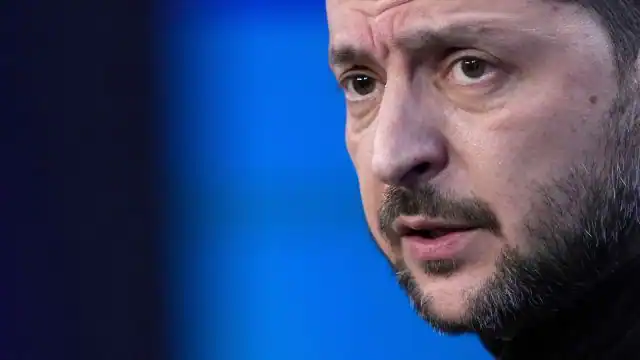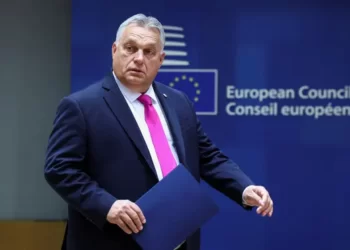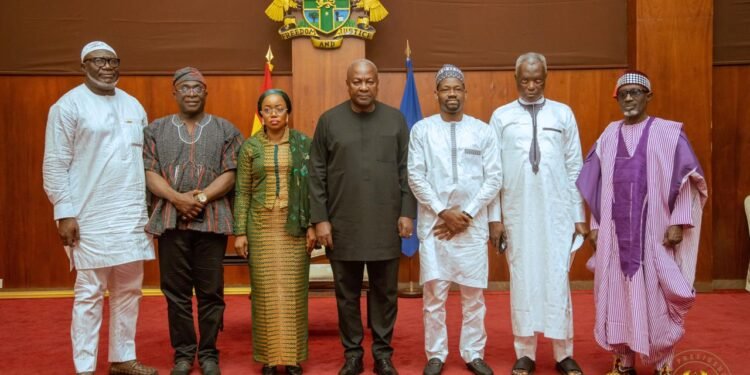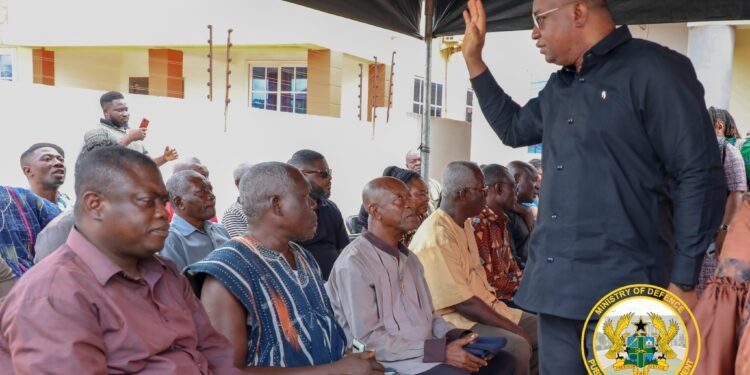A host of European leaders will join Ukrainian President Volodymyr Zelenskyy for talks with US President Donald Trump at the White House on Monday, August 18, 2025, seeking an end to the Russia-Ukraine war.
This comes after Trump dropped both his push for a ceasefire and the threat of punitive actions against Russia following his Alaska summit with Russian President, Vladimir Putin.
Securing a ceasefire in Ukraine, more than three years after Russia’s invasion, had been one of Trump’s core demands before Friday’s Alaska summit, to which Ukraine and its European allies were not invited.
After the summit with Putin yielded no clear breakthrough, Trump ruled out an immediate ceasefire, saying that a “peace agreement” is the best way to end the war in Ukraine rather than a ceasefire, something Ukraine and its allies have been pushing for.
In an effort to try show a firm, united front to the US President in White House talks on Monday, German Chancellor Friedrich Merz, French President Emmanuel Macron, British Prime Minister Keir Starmer, NATO Secretary-General Mark Rutte, Finland’s President Alexander Stubb, Italian Prime Minister Giorgia Meloni and European Commission President, Ursula von der Leyen will accompany Zelenskyy to Washington, DC.
The German government said in a statement about the trip to the US capital that the talks will address, among other things, security guarantees, territorial issues, and continued support for Ukraine in its defence against Russian aggression. “This includes maintaining pressure on sanctions,” it added.
Strength and safety in numbers appear to be factors in the group visit, with memories still fresh about the hostile reception Zelenskyy received in February from Trump and US Vice-President JD Vance in a public White House dressing-down, castigating the Ukrainian leader as being ungrateful and “disrespectful.”
European powers want to help set up a trilateral meeting between Trump, Putin and Zelenskyy to make sure Ukraine has a seat at the table to shape its future.
They also want security guarantees for Ukraine with US involvement, and the ability to crank up pressure on Moscow if needed.
US Envoy Says Putin Agrees To Security Guarantee Resembling NATO’s Collective Defence Mandate
Meanwhile, Special US Envoy, Steve Witkoff said on Sunday that Putin agreed at the summit with Trump to allow the US and European allies to offer Ukraine a security guarantee resembling NATO’s collective defence mandate as part of an eventual deal to end the 3 1/2-year war.
Speaking on a news Programme, Witkoff said the clause — akin to NATO’s “Article 5” agreement that an attack against one is an attack against all — was a way of getting around Russia’s insistence Ukraine never be able to join NATO itself.
“We got to an agreement that the United States and other European nations could effectively offer Article 5-like language to cover a security guarantee.
“Putin has said that a red flag is NATO admission. And so what we were discussing was assuming that that held, assuming that the Ukrainians could agree to that and could live with that — and everything is going to be about what the Ukrainians can live with — but assuming they could, we were able to win the following concession that the United States could offer Article 5-like protection.”
Steve Witkoff
Witkoff said that it was the “first time we had ever heard the Russians agree” to such a provision being included in a peace deal.
He added that Putin made concessions on his demand for Ukrainian “land swaps” during his summit with Trump in Alaska on Friday.
He declined to offer specifics, but suggested that the Kremlin now sees “land swapping” occurring at the current front lines, rather than the administrative boundaries of at least some of the five regions long in Putin’s sights.
Also, Witkoff noted that “significant progress” made during the summit led Trump to abandon his push for an immediate ceasefire and instead work toward advancing a larger peace agreement.
He added that there was now momentum toward a larger peace deal that negated the need for an immediate ceasefire.
READ ALSO: Bail Delays Threaten Justice























